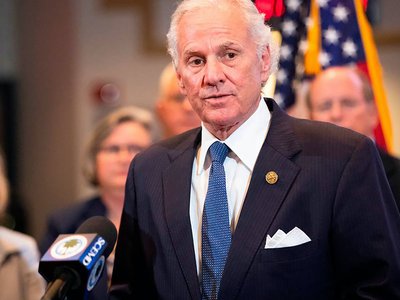In America, the principles of fairness and equal treatment are fundamental to the rule of law. When we fall short of these principles, we lose confidence in our justice system and weaken the foundation of our country.
Since 1986, there has been a substantial difference in prison sentences for crack and powdered cocaine offenses, a disparity that has not only encouraged a misapplication of limited law enforcement resources, but has also been the source of unequal punishment for basically identical crimes.
The sentencing disparity was not created in bad faith. The spike in the use of crack in the 1980s was linked to violent crime, and lawmakers had serious concerns about the long-term impact of this highly addictive narcotic. At that time, experts believed that crack could chemically induce violent actions, thus possession of this drug was treated more harshly than other narcotics.
The Anti-Drug Abuse Act of 1986, supported by Republicans and Democrats, established stricter sentences for crack possession. The disparity was shockingly wide: the amount of crack cocaine needed to trigger the five- and 10-year mandatory sentences was 100 times less than that for powdered cocaine.
During my time in Congress in the 1990s, and as the head of the Drug Enforcement Administration (DEA) from 2001-2003, I saw first-hand the impact of this disparity, and found it was failing on three fronts.
First, it rarely led to the prosecution of major drug traffickers and sellers. Instead, it led to increased prosecutions of small-time dealers and peripheral supporters, almost all of whom were replaced immediately.
Second, it became clear that the disparity was built on a misunderstanding of crack cocaine’s chemical properties and effects of the body. Crack and powdered cocaine were chemically the same, and the violence that was linked to crack cocaine was not related to the properties of the drug. Instead, it was the general product of the drug trade and the historically violent trends in areas where crack is predominantly used and sold.
Third, it undermined community confidence in the fairness of the criminal justice system. I talked with drug task force officers and front-line agents at the DEA who said this sense of injustice had a real impact in the fight against illegal drugs; it made it more difficult for agents to build trust and work with informants in the areas most impacted by the crack epidemic. The disparity in sentencing led to more harm than help in our federal anti-crime efforts.
The bipartisan Fair Sentencing Act, sponsored by Sens. Dick Durbin, D-Ill., and Jeff Sessions, R-Ala., dramatically reduced the disparity, from 100:1 to 18:1. In 2018, the First Step Act, signed into law by President Donald Trump, made that reduced disparity retroactive.
Those were important steps, but the new sentencing laws continue to cause disproportionate harm and decreased trust in communities of color. For example, in 2019, Black people accounted for 81% of all federal crack cocaine convictions. Those convictions led to prison terms 18 times longer than they would have been for equivalent amounts of chemically identical powdered cocaine.
It is time for Congress to finish what it started, and finally and fully end the disparity between crack and cocaine offenses. The bipartisan Equal Act would bring federal sentencing law in line with most states that have eliminated, reduced or never instituted, these unjust disparities. That includes my home state of Arkansas, where possession of crack and powdered cocaine are treated the same under state law.
The Equal Act has support from across the political spectrum and is sponsored by Sens. Dick Durbin, D-Ill., Rob Portman, R-Ohio, and Cory Booker, D-N.J., and a bipartisan coalition of nearly 30 members of the House of Representatives, including conservative lawmakers such as Reps. Kelly Armstrong, R-N.D., Cathy McMorris Rodgers, R-Wash., Thomas Massie, R-Ky., and Tom Cole, R-Okla.
The strength of our justice system is totally dependent on the perception of fairness and the concept that punishments should fit the crimes. The clear and pernicious injustice of crack and powdered cocaine sentencing disparities harms our communities, limits law enforcement in their fight against illegal drugs, and weakens the foundation of our entire system of justice.
Congress has the opportunity to fully and finally eliminate this injustice by passing the Equal Act. To get it done, lawmakers of all different backgrounds will need to put partisanship aside and work in the best interests of the American people. I can’t think of a worthier cause than preserving our founding principle – that all Americans are treated equally under the law.







